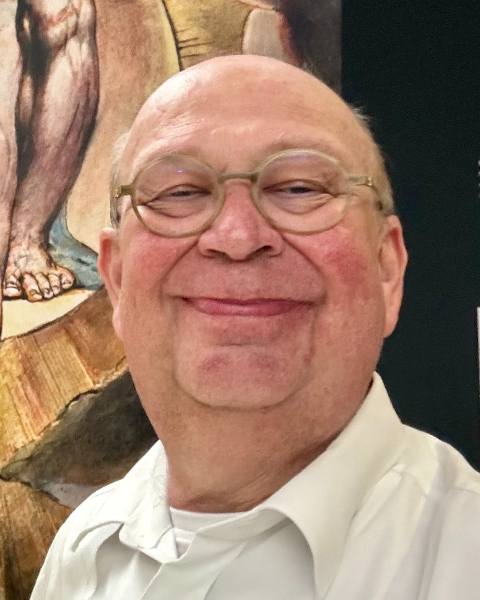PQA 06 - PQA 06 Biology and Patient Reported Outcomes/QoL/Survivorship Poster Q&A
2859 - Spirituality and Religiousness as a Special Resource for Patients with Breast Cancer
Monday, September 30, 2024
5:00 PM - 6:00 PM ET
Location: Hall C
Screen: 1

Oliver Micke, MD
Franzikus Hospital Bielefeld
Bielefeld, NRW
Presenter(s)
C. Sell1, D. R. Steike1, M. Oertel1, H. T. Eich1, J. Hübner2, A. Büssing3, J. Buentzel4, and O. Micke5; 1Department of Radiation Oncology, University Hospital Muenster, Muenster, Germany, 2Department of Internal Medicine II, Jena University Hospital, Jena, Germany, 3Professorship Quality of Life, Spirituality and Coping, Faculty of Health, Witten/Herdecke University, Herdecke, Germany, 4Department of Otolaryngology, Head Neck Surgery, Suedharz Hospital, Nordhausen, Germany, 5Department of Radiotherapy and Radiation Oncology, Franziskus Hospital, Bielefeld, Germany
Purpose/Objective(s): Radiotherapy (RT) is standard treatment in breast cancer. However, the distress of patients and the special psychosocial and spiritual needs are not well explored. Therefore, we assessed the distress and the life satisfaction of breast cancer patients under RT and whether they have an increased need for psychosocial and/or spiritual support. Materials/
Methods: A total of 114 patients with breast cancer before RT answered a survey developed by the Working Group Prevention and Integrative Oncology (PRIO) of the German Cancer Society. Median patient age was 59 years (range, 27-86). Overall, 71.9% lived in a partnership. 80 of 114 (70.2%) reported to be close to Christianity, 21 do not belong to any religion (6 no information). Islam (3), Orthodox (1) and Buddhism (5) were mentioned sporadically. Although the majority claim to be close to Christianity, only 39.5% describe themselves as religious (37.7% deny that). Regarding spirituality, 29.8% say they are spiritual and 51.8% are not. We assessed the data for spirituality (SpREUK-15), the perceived distress („distress thermometer“, NRS), for life satisfaction (WHO-5 and BMLSS-10), and the perceived support (BMLSS Support).
Results: The overall distress of disease (NRS: 0-100) is reported to be 42.32 (Range, 0-90), whereas distress of the current situation is 43.29 (Range, 0-100). Data for life satisfaction indicate a considerable loss compared to other oncological patients’ groups. Concerning special needs, it is noticeable that the family is a valuable resource, as is the beauty of nature and talking about worries and fears. A larger effect in the support of nursing/physicians compared to psychology/spiritual care is reported. There is significant correlation between spirituality and distress: R=0.171. Overall, the patients have yet unmet needs in spiritual care.
Conclusion: There is marked deficit in life satisfaction in breast cancer patients compared to other chronically ill patients. There is an effect of support of nursing/physicians and a correlation between spirituality and distress. The improvement of mental support / spiritual care is necessary through long-term support from spiritual care givers.
Purpose/Objective(s): Radiotherapy (RT) is standard treatment in breast cancer. However, the distress of patients and the special psychosocial and spiritual needs are not well explored. Therefore, we assessed the distress and the life satisfaction of breast cancer patients under RT and whether they have an increased need for psychosocial and/or spiritual support. Materials/
Methods: A total of 114 patients with breast cancer before RT answered a survey developed by the Working Group Prevention and Integrative Oncology (PRIO) of the German Cancer Society. Median patient age was 59 years (range, 27-86). Overall, 71.9% lived in a partnership. 80 of 114 (70.2%) reported to be close to Christianity, 21 do not belong to any religion (6 no information). Islam (3), Orthodox (1) and Buddhism (5) were mentioned sporadically. Although the majority claim to be close to Christianity, only 39.5% describe themselves as religious (37.7% deny that). Regarding spirituality, 29.8% say they are spiritual and 51.8% are not. We assessed the data for spirituality (SpREUK-15), the perceived distress („distress thermometer“, NRS), for life satisfaction (WHO-5 and BMLSS-10), and the perceived support (BMLSS Support).
Results: The overall distress of disease (NRS: 0-100) is reported to be 42.32 (Range, 0-90), whereas distress of the current situation is 43.29 (Range, 0-100). Data for life satisfaction indicate a considerable loss compared to other oncological patients’ groups. Concerning special needs, it is noticeable that the family is a valuable resource, as is the beauty of nature and talking about worries and fears. A larger effect in the support of nursing/physicians compared to psychology/spiritual care is reported. There is significant correlation between spirituality and distress: R=0.171. Overall, the patients have yet unmet needs in spiritual care.
Conclusion: There is marked deficit in life satisfaction in breast cancer patients compared to other chronically ill patients. There is an effect of support of nursing/physicians and a correlation between spirituality and distress. The improvement of mental support / spiritual care is necessary through long-term support from spiritual care givers.
